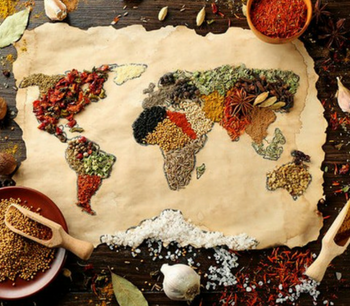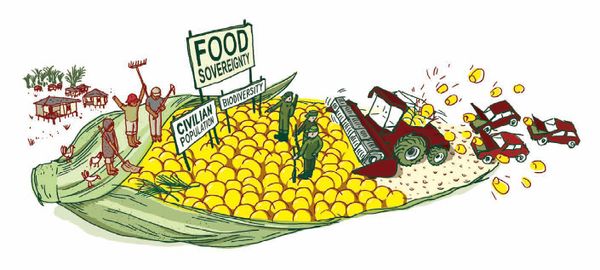This post is a response to “What Contemplative Practices Have Taught Me about Problem Solving” by, Sydney
In “What Contemplative Practices Have Taught Me about Problem Solving,” Sydney reflects on feelings of restlessness, not knowing how to make a meaningful difference as a consumer in a food system that simultaneously benefits some (in particular, us) and negatively impacts others. I agree with Sydney, we must examine our own relationship to the existing system prior to effective systems analysis. We know, at this point in the course that a system is an interconnected set of aspects that is organized in a way that achieves a function or purpose. We are evidently a part of the world food system. However, I want to extend past this and begin to incorporate and deliberate options for next steps following effective contemplation.
I offer a consideration of another article “How Consumers and Farmers Can Transform Food Systems” by Tania Strauss and Maria Elena Varas. This article discusses both a farmer in Vietnam who has little access to beneficial food systems information as well as a consumer, Meaghan, in the United States who navigates the food system with consistent flows of contrasting information from social media and mainstream news. Meaghan is an individual that resonates with most of us, when shopping we consider all of the information that has arrived with us through our education, our social media usage, and our familial teachings. Strauss and Varas argue that consumers should be at the heart of any solution that is considered to make the world food system more effective for everyone. We, as consumers, hold the power and ability to change demand and ensure that food systems operate in a more sustainable manner for producers and consumers. This would suggest that you and I are at the center of this “food systems crisis,” that it is up to us to reconfigure this system to work for us, as well as the people that produce our food.

This graphic places consumers at the center of the image, much like Authors Strauss and Varas do. (https://www.foodshedinvestors.com/faq/what-is-a-foodshed-ecosystem)
When we turn to the World Economic Forum’s Food Systems Initiative Report on the role of incentives to enable food systems to transform, there is only one suggestion for the general population to engage in, simply changing consumer behavior. The other three pathways for developing incentives to transform food systems are repurposing public investment and policies, business model innovation, and institutional investments. Therefore, I posit a question; to what extent is individual responsibility integral to the alteration of the food system to become more conducive to all actors involved? Furthermore, is the concept of individualism infiltrating the discussion on the improvement of the world food system in a prohibitive manner?

This is a graphic that captures the WEF’s food systems initiative on the role of incentives to enable food systems to transform recommendations of how to achieve food system aspirations. (https://weforum.ent.box.com/s/35vs54zp4mqfnlg17lb6yli5rsc9bg2x)
I do not mean to end this discussion with further questions, however, it feels inevitable to continue to prod at the questions at the hear of these issues, we must converse and engage with one another to develop the most effective practices and responses.
Finally, with consideration of the concept of individualism, I suggest the following articles in an effort to further contemplate our roles in this world food system.
Best,
Sophie Stein













